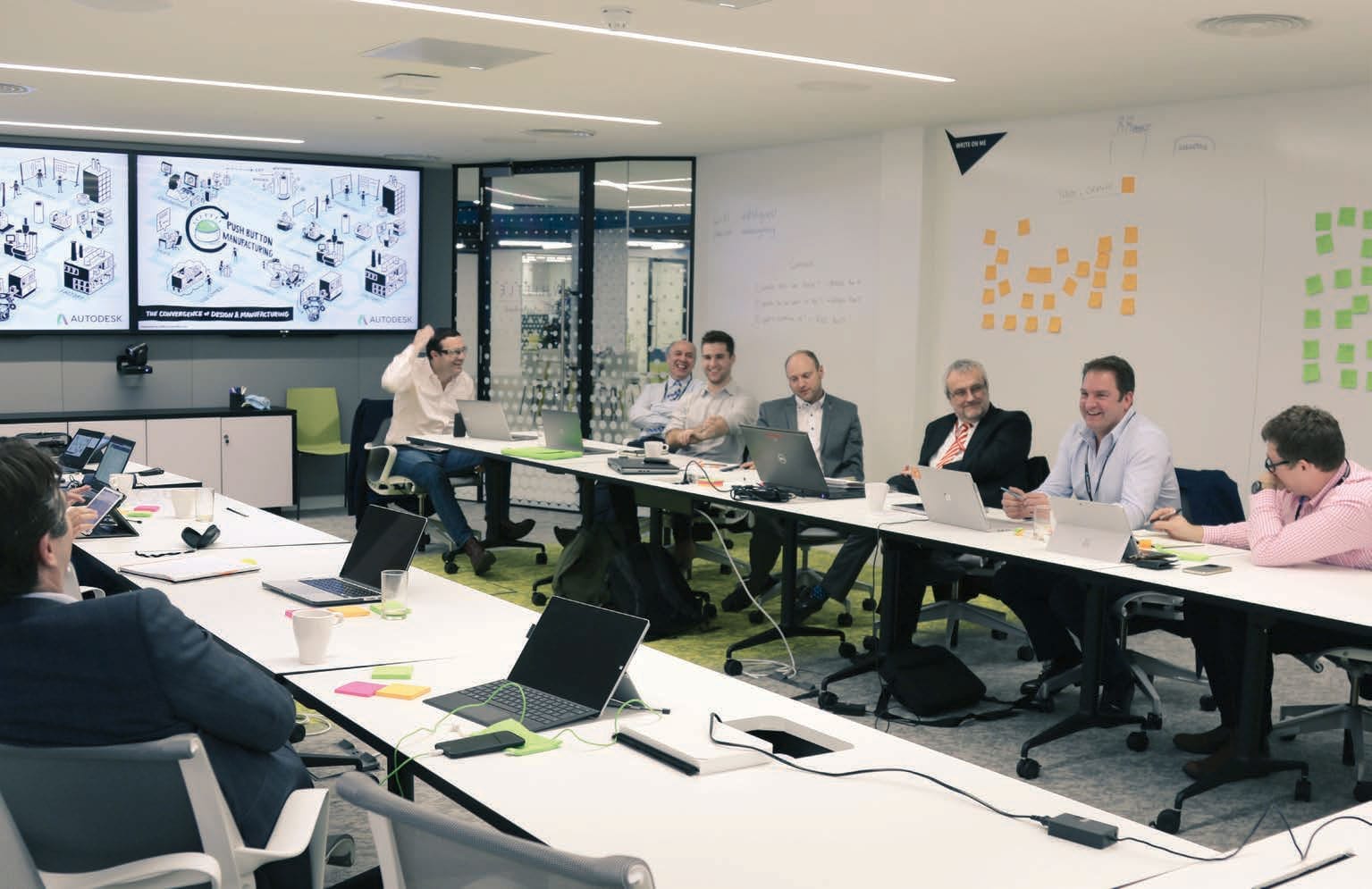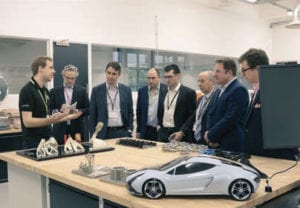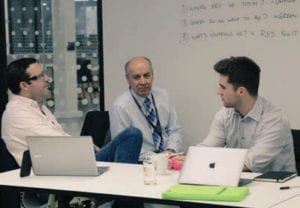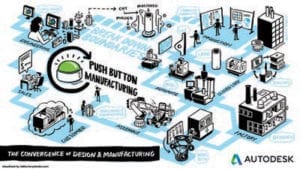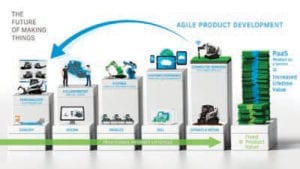How will we make things in the future? How will the entire process work, with purchasing, with automation, with the customer, with more data?
If technology could let you re-engineer how manufacturing was designed, what would it look like?
How would raw materials be sourced and priced? Will companies and customers really get a more affordable customised service? Which technology would you select to fabricate a part – cutting, casting, additive, laser, pressure forming, printing? How would the end product be validated; would quality control be like it is today or would inspection occur within the process and not at the end? Can customers alter the order just before it’s manufactured?
And how would all this data effect pricing, when everyone’s costs are more accessible?
Autodesk brought experts from across the precision engineering industry to its Autodesk Advanced Manufacturing Facility (AMF) to take part in a round table debate how new methods of buying, designing, making, communicating, speeding up, analysing and delivering.
Oer a day beginning with a tour of the AMF the group deconstructed and debated all aspects of today’s and the Industry 4.0 paradigm of idea, design, manufacture and sale, covering new ways of thinking about • Engineering design • Purchasing • Production • Assembly • Tooling • Customer interaction • Automation • Sales • Closed loop business and more.
The participants from companies including Sandvik Coromant, Mazak, Renishaw, Fanuc, Amari Metals, Warren Services and more, discussed how these constructs were changing in their own companies and their customers.
Themes debated included: more choice and better availability of materials, data overload, the risk and opportunities of sharing data, changing business hierarchies, fast-tracking product delivery, and higher product customisation, the burden of risk and the convergence of software skills, engineering and business skills to succeed.
A popular theme was that of the terabytes of data that modern machine tools and tooling can capture for a company, how much of it is useful to the customer? With availability and monetising of data, one participant provided a summary of the debate:
- Many people still don’t know what industry 4.0 really is
- It should definitely be open source, no-one should “own” shared data and therefore you can’t easily market it. However, you can market provision for it.
- No one can agree on a protocol and we shouldn’t try because it will take too long therefore….
- To make a success of Industry 4, companies need specific but readily available talent, preferably people with IT proficiency, able to programme in .NET languages, able to mine data, use SQL, MYSQL and XML and able to openly discuss requirements with process engineers.
Once this is established then it’s up to individual companies to reap the rewards of Industry 4.0 which can be exceptional, he added. The debate fed into The Future of British Manufacturing Initiative (FoBMI), a nationwide programme to promote new systems of manufacturing to make companies better and more competitive.
More information about FoBMI can be found here: https://www.autodesk.co.uk/ futureofbritishmanufacturing

